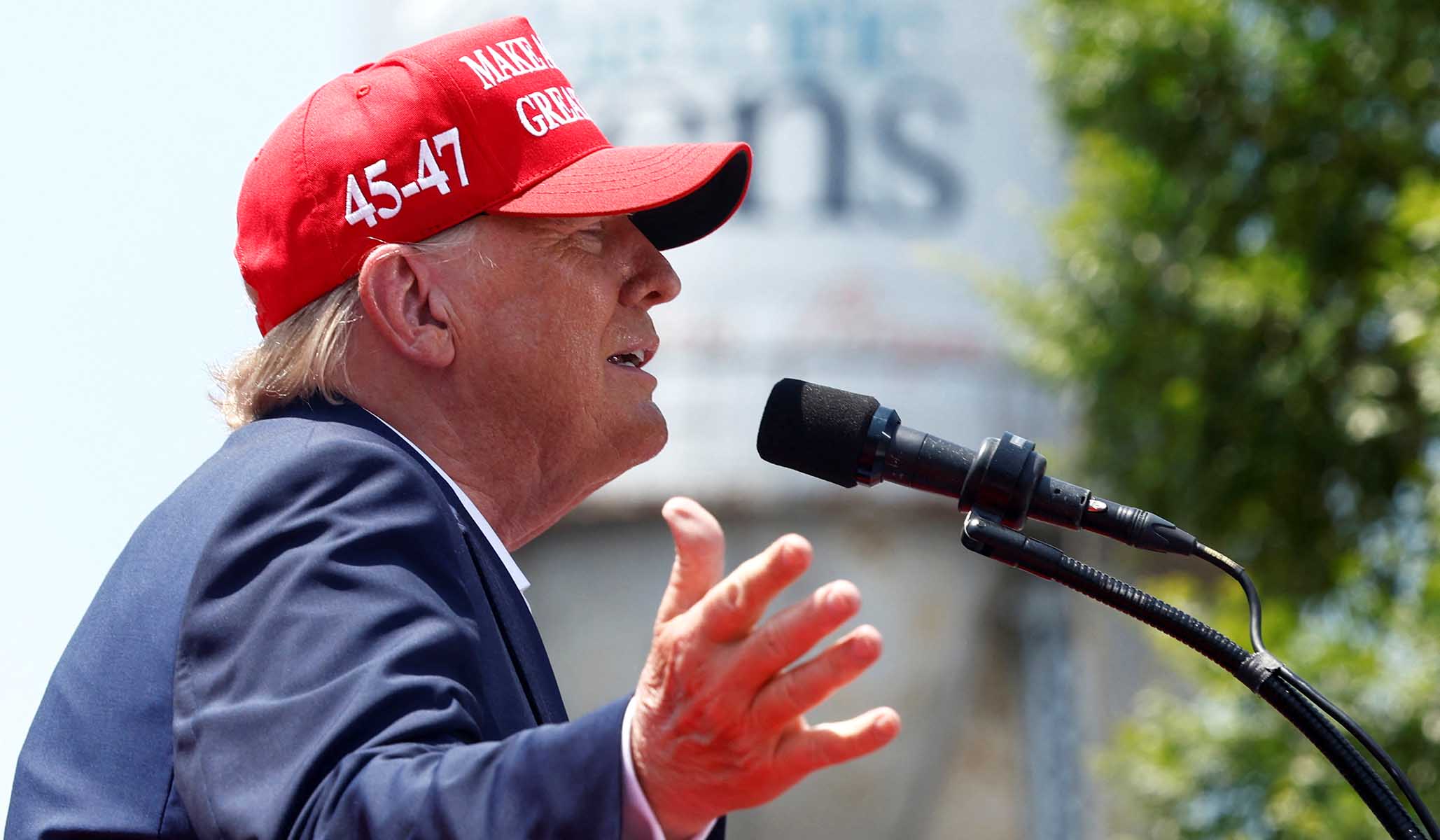


On Tuesday, senior adviser to the Trump campaign Jason Miller confirmed the long-simmering suspicion that Trump is “unlikely to participate in at least the first two debates.”
“It really wouldn’t make much sense to go debate right now with a bunch of folks who are down at three, four, and five percent,” Miller told News Nation anchor Leland Vittert, adding that even Ron DeSantis is polling too far behind the former president to justify engaging with the Florida governor on an even playing field.
When asked what Trump was “afraid of,” Miller insisted the 45th president was only being rational. “I think in many ways it’s similar to getting a bye in the first round of the NFL playoffs,” Trump’s adviser analogized. When you have played an “undefeated season,” he continued, you aren’t expected to risk it all against a wild-card team. Indeed, Miller continued, it’s really the rest of the GOP primary field that should commit to some soul-searching here. Given their standing in the polls, the non-Trump candidates in the race should ask themselves if their campaigns are “really just getting in the way of us beating Joe Biden next year.”
Miller’s bravado was not, however, consistent. After insisting that Republican Party should clear the field for Trump, Miller was confronted with comments from New Hampshire governor Chris Sununu, who mocked Trump for refusing to commit to debates. In response, Miller scoffed at the governor over his decision to pass on his own presidential campaign. If Sununu were serious, Miller said, he would “jump in the race.” So, which is it? Should Trump’s critics within the GOP try to debate him directly, or is the very act of trying to debate him a petulant and selfish denial of the inevitable tides of history?
If you’re confused, it’s not your fault. If the Trump campaign was genuinely committed to projecting an air of inevitability such that he shouldn’t even deign to debate his Republican opponents, Trump’s decision to bow out of an upcoming candidates’ forum in Iowa would have been deliberate and purposeful. And yet, according to sources who spoke with New York Times reporter Jonathan Swan, the Trump campaign wants to both shield its candidate from scrutiny but also have his views represented on the stages he is boycotting. “Team Trump reached out to Bob Vander Plaats earlier today and requested to send Senator JD Vance to Friday’s event as a surrogate for Trump,” Swan reported. “Vander Plaats denied the request.”
There is a temptation to attribute the Trump campaign’s maneuvers to some grand strategy. After all, the “will he/won’t he” speculation around Trump’s willingness to make the Republican Party’s nominating contest into a must-see prime-time spectacle serves his interests. It keeps his name in the news and makes him into a Godot looming unseen but omnipresent. But if this were a strategy, it would likely be executed more cleanly. Miller wouldn’t muddle his message by insisting Trump’s critics should simultaneously drop out of the race and, also, enter the race if they want their criticisms to be taken seriously. Trump wouldn’t boycott this Iowa forum, sure in the assumption that his personality and preferences already dominate the GOP, only to flail in a last-minute effort to have his views and preferences represented. These maneuvers are too ad hoc to be suggestive of any strategic insight.
Moreover, Trump’s rationale for skipping the debates keeps changing. According to Miller, it is that he is too far ahead in the polls to justify stooping to his opponents’ level. After all, the base of the Republican Party doesn’t like what they’re selling. But in May, Trump was reportedly telling associates that his presence on the debate stage would only lend credibility and grant publicity to his Republican critics. That is inconsistent with the notion that Trump is unafraid of the message his opponents are retailing. The former president also reportedly harbors a grudge against the hosts of those first two debates — Fox News Channel and the Ronald Reagan Presidential Library — for their willingness to lend microphones to prominent Republicans who are not Donald Trump. But some reporting has also indicated that the former president is prudently concerned that a situation in which he is compelled to riff extemporaneously on the criminal indictments pending against him could jeopardize his legal position.
All told, it’s hard to avoid the conclusion that Trump’s is a uniquely disadvantageous position from which to launch a presidential campaign. He can’t speak candidly about what is likely to be his biggest political liability in a general election, and he cannot risk being confronted about that. He cannot resist the allure of a camera lens, nor can he countenance the existence of conservative institutions that acknowledge strains of thought on the right that depart from Trump centricity. He wants to project the pugilism that endeared him to Republican voters’ hearts, but he does not welcome the risks associated with sharing the spotlight.
None of this adds up to a strategy. It is more suggestive of a campaign that is struggling to navigate a treacherous political and legal landscape, and that sense of trepidation will be hard for the candidate to hide on a no-holds-barred debate stage. What other conclusion could observers reach than that Donald Trump is scared?
